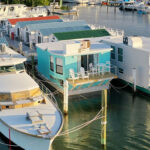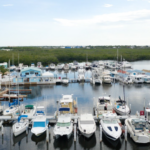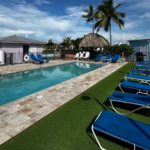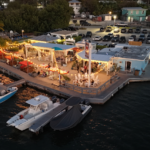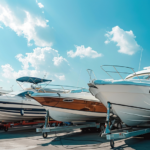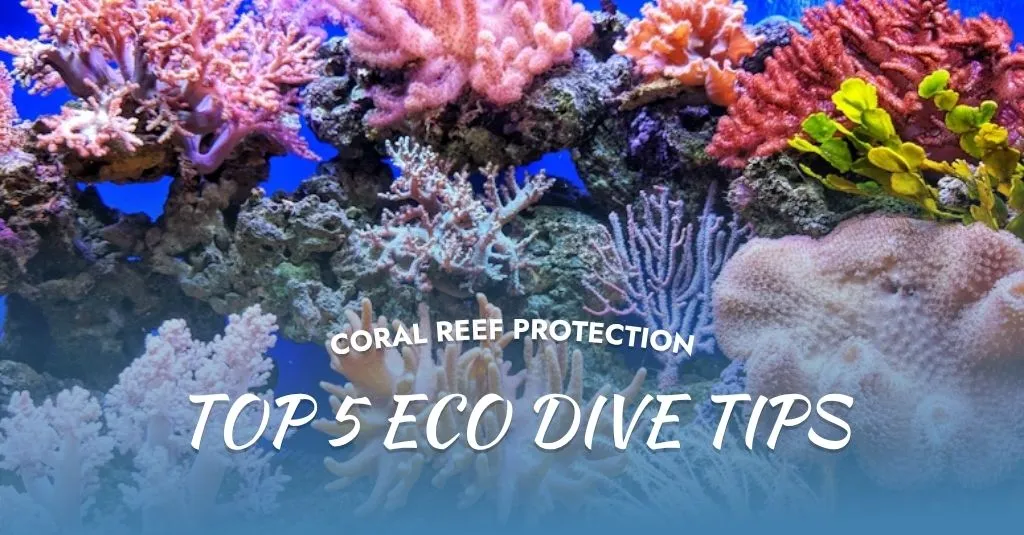
Coral Reef Protection: Top 5 Eco Dive Tips
The Florida Keys boast some of the most well-known and diverse coral reefs in the U.S. These vulnerable environments are essential for marine life, as they protect our coastlines and support our tourism industry. But climate change and pollution, and human negligence are some of the things threatening them. Mangrove, as a portal to the Keys’ waters, Mangrove Marina is uniquely situated to set the standard for stewardship of our reefs.
With eco-conscious snorkel and dive programs designed with the marina, they can help ensure that visitors take in the beauty of these reefs without damaging them. For coral reef protection, the marina also promotes sustainable tourism that benefits local communities, as well as generations to come.
The Role of Mangrove Marina in Coral Reef Protection
Marinas are not just places to park your boat; they are gateways to exploring the sea. Mangrove Marina has the potential to shape the visitors’ behavior by providing:
- Education on snorkel/diving ethics
- Local reef restoration projects partnerships.
- Advertising for and use of eco-friendly gear and practices.
- Certified Responsible Tourism operators available.
It turns fun vacationing into fun vacationing, conserving, and underscores the importance of coral reef protection.
Which Reefs Nearby Are Most Threatened?
Reefs off the Florida Keys have been under widespread stress. Some of the most imperilled include:
- Molasses Reef: Renowned for its diversity, but at risk from coral bleaching.
- French Reef: Abundant in caves and swim-throughs, but suffering from anchor damage and warming waters.
- Pickles Reef: Smaller but sensitive, and is a favourite with beginner snorkelling.
Educating visitors about the state of the reefs and selecting excursions to less-stressed areas, Mangrove Marina can help to divert pressure from these delicate ecosystems and advocate for coral reef conservation.
Rules for Snorkelers and Divers: Minimizing Damage
Visitors often don’t realize that small actions can have long-term consequences for reef health. Mangrove Marina could provide pre-trip briefings that cover snorkel and diving ethics, such as:
- Keep away from corals: Corals can be killed or damaged by even a light touch.
- Do not stand on reefs: fins and gear can crush fragile formations.
- Choose reef-friendly sunscreen: Oxybenzone and other chemicals destroy coral larvae.
- Keep good buoyancy: Don’t let your fins stir up silt, which then smothers the corals.
- Respect the animals: Don’t chase or feed fish, turtles, or other marine creatures.
Adherence to such protocols is embedded during the recreational-use portion of coral reef protection.
How Do Researchers Assess Reef Health?
Conservation efforts rely on accurate data. Local researchers often monitor reef health using methods such as:
- Standard Coral Cover Surveys: Assessing the percentage of live coral vs. algae.
- Fish Counts: Monitoring biodiversity and the balance of predators and prey.
- Water Quality Analyses: Testing for contaminants, nutrients, and pH balance.
- Photo Monitoring: Employing sequences of photos to record changes on a reef.
Through collaboration with citizen scientists, Mangrove Marina can combine tourism and “hands-on” marine research, now including coral reef protection, where guests can make an impact by collecting valuable data.
Eco-Friendly Gear: Choosing Less Harmful Equipment
Proper gear can help improve outcomes for reef conservation. Sustainable alternatives are:
- Reef-safe sunscreens or covers to protect from chemical runoff.
- Snorkel vests for beginners to stay afloat without leaning on the reef.
- Non-toxic antifouling products for boats used in diving travel.
- Designed to reduce unintentional contact, our reef-friendly fins and masks.
Promote or rent such gear at Mangrove Marina, and you will be helping to align recreation with the protection of the coral reefs.
Supporting Local Reef Restoration Projects
Conservation is more than responsible tourism; it’s also restoration in practice. In the Florida Keys, programs often focus on:
- Coral Nurseries: Fragments of hardy corals are grown and transplanted.
- Outplanting Initiatives: Volunteers assist in gluing corals back to reef formations.
- Education and Funding: Tours featuring a donation portion that benefits reef science.
Mangrove Marina could further contribute to coral reef protection by becoming a stronger advocate for these local reef restoration initiatives.
How Visitors Can Be Part of the Solution
But tourists can do more than just stay out of the way; they can help reefs survive. Actions include:
- Selecting agents and tour operators that are accredited in responsible tourism.
- During booking, donate to reef restoration.
- Signing up for cleanups or outplanting dives.
- Pass on reef conservation messages on social media to build awareness.
All of these small actions add up, making tourists pivotal players in coral reef protection.
Challenges in Implementing Reef-Safe Programs
There are still some challenges, despite our best efforts:
- Cost Barriers: Green equipment and partnerships for reef restoration come at a cost.
- Behavioral Change: Not all visitors want to abide by regulations.
- Environmental Unpredictability: Climate change is stressing reefs, no matter what a site can do locally.
But funding education and programs focused on protecting the coral reefs is a benefit that will pay the ecosystems – and the tourism industry – forward.
Conclusion: Protecting Coral Reefs Starts at the Marina
Reefs in the Florida Keys are a world treasure, and now more than ever, their survival depends on immediate, collective action. As a starting point for countless adventures, Mangrove Marina has a unique opportunity to be a leader in coral reef protection.
Through ingraining conservation into snorkel and dive ethics, contributing to reef health monitoring, encouraging sustainable gear, and allying with local reef restoration efforts, Mangove Marina could make reef conservation a natural offshoot of its business.
There are so many ways that every dive, snorkel, and visitor can help protect coral reefs – beginning right here at Mangrove Marina.
FAQs
What are the most endangered reefs around Mangrove Marina?
Molasses, French, and Pickles Reefs are under threat from bleaching, overuse, and pollution.
What are the best rules to follow for responsible snorkelling and diving?
Don’t touch the corals, use reef-safe sunscreen, have good buoyancy control, and remember the marine life.
How do they track reef health?
Via coral cover, fish counts, water test, and photos over time, said Longenecker.
What equipment reduces damage to the reef?
Reef-safe sunblock, buoyancy compensators, non-toxic antifouling paints, and reef-friendly flippers.
How can tourists help the cause of coral reef conservation?
By choosing tours that are eco-certified, making donations to reef restoration, and participating in volunteer programs.

